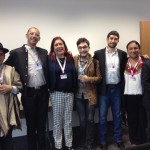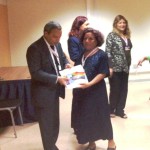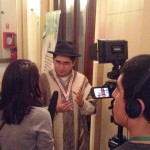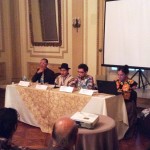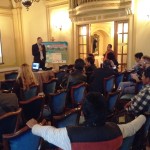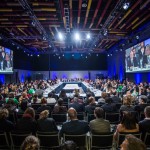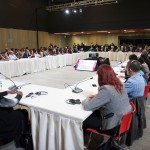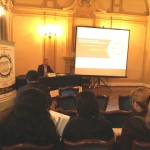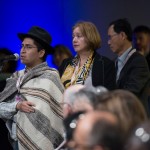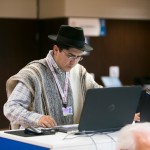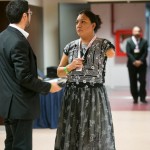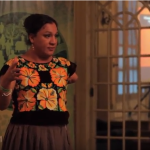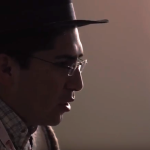BIC organized a delegation of 9 Latin American SOGIE activists to participate during World Bank 2015 Annual Meetings in Lima, Peru. The delegates ask the World Bank to promote research in Latin America on the cost of discrimination against LGBTI persons and indigenous sexual diversities.
Since early 2014, BIC has been collaborating with different allies and building the capacity of SOGIE activists across the globe to engage and advocate for the World Bank to adopt standards that protect and include sexual and gender minorities.
Women, girls, sexual and gender minorities compose more than half of the world’s population and face discrimination, human rights abuses and frequent exclusion from positive benefits of economic development. Nevertheless, the World Bank has never adopted a mandatory safeguard policy to mitigate gender or sexual orientation and gender identity & expression (SOGIE) related risks associated with its investments.
The World Bank must adopt better protections for women, girls, sexual and gender minorities and implement key institutional changes to ensure a more inclusive approach to gender, sexual orientation and gender identity (SOGIE). The Bank must re-examine its institutional practices and strategies regarding gender and SOGIE and adopt inclusive strategies that effectively promote greater gender and SOGIE equality in its work.
Countries where homosexual acts are illegal, click to see World Bank’s activities in these countries.
What institutional changes are necessary at the World Bank?
The World Bank should ensure that its research and reporting efforts reflect gender and SOGIE in meaningful ways. The scope of the World Development Reports, Social Impact Assessments, Country Gender Assessments, and household surveys must be extended in order to address the needs of women, girls, sexual and gender minorities.
World Bank staff on all levels need to be made aware of the importance of gender- and SOGIE-inclusive programs. Country Managers should receive relevant training. The mandate of the existing World Bank Gender Unit must be expanded to include SOGIE concerns through the hiring of additional staff and training for all existing Gender Unit staff. In addition, the advisory group to the Gender Unit must be extended with experienced members in order to reflect the expanded mandate of the newly named Gender and SOGIE Unit.
The protection of LGBTI persons should also include indigenous sexual diversities. Being ‘muxhe’ (Zapoteca) is not synonymous with being transgender; being ‘quewa’ (Quechua) is not synonymous with being gay or lesbian; being ‘teví’ (Guaraní), ‘nàdleehé’ (Navajo), ‘winkte’ (Sioux), ‘mexoga’ (Omaha), ‘he man eh’ (Cheyenne), and other forms of ancestral diversity are not synonymous with LGBTI terminology.
The World Bank should promote and finance research in Latin America on the cost of discrimination against LGBTI persons and indigenous sexual diversities, in order to be able to economically quantify the grave harms generated by discrimination, hate crimes, marginalization, and violence, the inequality of opportunity in public policies, and affirmative action for these populations. Said research should inquire into economic and labor rights, income, formal and informal economies, tourism, migration and immigration, human and other trafficking, and situations of economic and social inequality, among many other topics.
What has BIC done to advance SOGIE issues at the Bank?
BIC organized a delegation of 19 SOGIE activists to participate during the World Bank 2015 Spring Meetings and 9 Latin American SOGIE activists to participate during the World Bank’s 2015 Annual Meetings. In over 40 meetings the delegates met key decision makers both inside and outside of the institution, and participated as expert panelists. Their participation contributed to build an understanding of World Bank culture and processes and allowed the activists to make valuable connections as they advocate for change. As a result, the Latin American Executive Directors committed to support and encourage the SOGIE Task Group to do a report in Latin American countries on the cost of LGBTI discrimination, comparison of legal frameworks and their impact on development and the LGBTI community.
World Bank representatives and members of civil society participate in a SOGIE Task Force, which meets quarterly and has become an important avenue for guiding Bank research and policy on SOGIE issues. The Bank has also agreed to the appointment of a specific high senior level person in charge to take SOGIE issues, who will operate with allocated budget and dedicated staff.
While a gender and SOGIE safeguard was not included in the World Bank’s 2016 Environmental and Social Framework, it remains important to push for greater SOGIE inclusion in Bank projects.
Gender and SOGIE Safeguard Policy
LGBT and Ancestral Indigenous Sexual Diversities: The Complex Identities of Development Actors and the Possibility of Double Discrimination (Spanish | español) BIC and partners, October 2015
Letter to World Bank on LGBT inclusion in Safeguards Council for Global Equality, Sept 2015
Gender and SOGIE Safeguard Position Paper BIC, February 2015
Gender and SOGIE Safeguard (Spanish | español) BIC, July 2014
World Bank Policy Resources
Inclusion Matters World Bank
Integrating Gender into the World Bank’s Work: A Strategy for Action World Bank
Operational Policy 4.20 – Gender and Development World Bank
Other Resources
Brief on Violence Against Sexual and Gender Minority Women (Spanish)
Violence Against Women and Girls
The Relationship Between LGBT Inclusion and Economic Development USAID, Williams Institute
Discrimination and violence against individuals based on their sexual orientation and gender identity UNCOHR
Assessing the World Bank Group’s Workplace on LGBT Equality 2015 Wordplace Climate Survey
Forced sterilization Open Societies Foundation
Assessing the World Bank Group’s Workplace on Lesbian, Gay, Bisexual and Transgender (LGBT) Equality The Williams Institute
LGBT Rights and Representation in Latin America and the Caribbean Javier Corrales
A Climate of Fear for LGBT People in Kazakhstan Human Rights Watch
A World Survey of Laws: criminalisation, protection and recognition of same-sex love ILGA
Sexual Orientation and Gender Identity Issues in Development Sida
Sexuality, Poverty and Law Programme Institute of Development Studies
LGBT in Development: A Handbook on LGBT Perspectives in Development Cooperation RFSL
Case Studies
The Economic Cost of Homophobia: How LGBT Exclusion Impacts Development World Bank
The World Bank Kosovo Power Project: IDA-16 Gender & Climate Change Commitments Undermined BIC
Human Rights Violations of LGBT People in Chile
Homophobia and Transphobia in the Caribbean Media
Arbitrary Arrests, Torture, and Killings in Gambia Human Rights Watch
The Economic Cost of Stigma and the Exclusion of LGBT People:
India World Bank
Discrimination on Grounds of SOGI in the Russian Federation Inter-Regional Social Movement ‘Russian LGBT Network’
Being LGBT in Asia: China Country Report USAID, UNDP
Attacks on LGBT People on Kenya’s Coast Human Rights Watch
The Development Cost of Homophobia: Jamaica
Violence against LGBT People in Sri Lanka International Gay and Lesbian Human Rights Commission
Violence against LGBT People in the Philippines International Gay and Lesbian Human Rights Commission
Violence against LGBT People in Pakistan International Gay and Lesbian Human Rights Commission
Violence against LGBT People in Malaysia International Gay and Lesbian Human Rights Commission
Violence against LGBT People in Japan International Gay and Lesbian Human Rights Commission
Violence against LGBT People in Malaysia International Gay and Lesbian Human Rights Commission
Violence against LGBT People in Colombia International Gay and Lesbian Human Rights Commission
News and Updates
Nobel Women’s Initiative Letter Nobel Women’s Initiative
World Bank Criticized for Ignoring LGBT Issues Washington Blade
Gender Review and Recommendations on the World Bank Safeguards Draft GenderAction
Press Statement by SOGIE Activists on the Leaked Safeguard Draft
Time to Act on LGBT Rights in Africa Kevin Watkins, Huffington Post
The Development Costs of Homophobia Adebisi Alimi, Project Syndicate
Activists Respond to Misguided Economist Article on the World Bank and SOGIE Rights BIC, via The Economist
Discrimination By Law Carries a High Price – by Jim Yong Kim Washington Post


